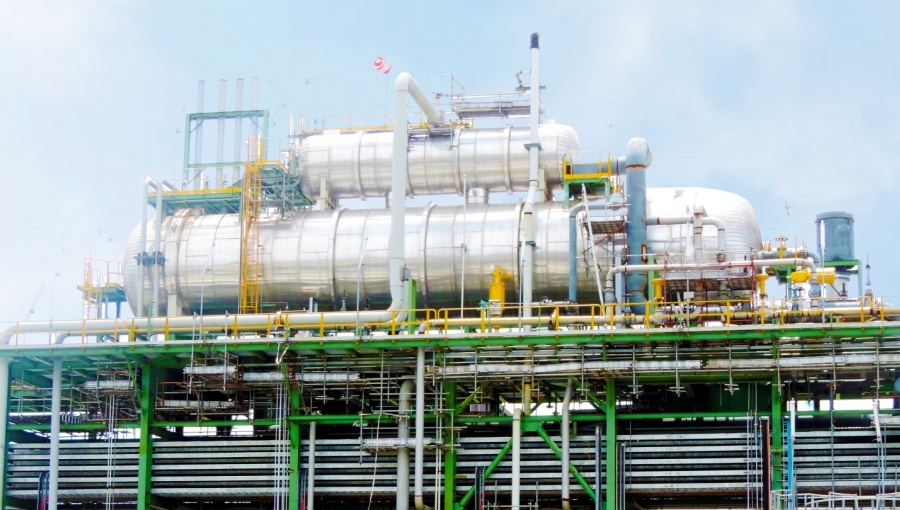Nigeria’s Dangote refinery designated ‘systematically important’ following strikes

The Nigerian government has said that the country’s privately-owned 650,000 barrels per day (bpd) Dangote refinery is too important to fail, according to a Bloomberg report.
Comments regarding Dangote’s importance to the Nigerian energy sector emerged following Dangote Group’s falling out with labour unions, who had threatened to shut off crude flows to the plant.
Unions were able to disrupt distribution networks however, with the Petroleum and Natural Gas Senior Staff Association of Nigeria (PENGASSAN) opting to go on a one-day strike following the suspension of 800 employees from Dangote last week.
Speaking at an economic summit in Abuja on October 6, Nigeria’s minister of budget and economic planning Atiku Bagudu said that the refinery should not only work but that such enterprises could be “systemically too important for a country’s development.” He added that the plant needed to be “supported at all costs,” according to Bloomberg.
Recent relations between the government and Dangote have improved dramatically since earlier this year, when the state-owned Nigerian National Petroleum Co. Ltd. (NNPCL) and Dangote clashed over the NNPCL’s failure to supply trucks for fuel loadings.
In September, Dangote’s managing director Devakumar Edwin told DMEA that the NNPCL had played a large part in hindering Dangote’s operations by failing to provide an adequate number of trucks, with this being the primary cause for low loadings in October.
The official continued to highlight that information regarding low loadings had been spread by those with vested interests, and whose business had been affected by the commission of the new plant.
Furthermore, Edwin also remarked that Dangote Refinery had offered a vessel to deliver fuel by sea, but that the NNPCL had failed to find customers for this loading, too.
Last year, Dangote Group CEO Aliko Dangote was at odds with numerous government entities, with raids being conducted by the anti-graft agency on his offices in 2024 and allegations being spread that the billionaire wanted to halt the import of diesel fuel, according to Bloomberg.
Incidents such as this forced Dangote to stop plans for investment into a 5mn tonnes per year steel plant in the country.
The power of Nigeria’s unions has placed the government on edge, with the organisations able to disrupt the country’s prime source of income – namely, oil and gas revenue.
For this reason, designating Dangote as systematically important may be a play to prevent any future disruptions.
The country’s Vice President Kashim Shettima said at the same conference that Nigeria “should not be held to ransom because of a minor labour dispute.” He concluded: “Aliko Dangote is not an individual, he’s an institution and he’s a leading light in Nigeria’s economy permanently. How we treat this gentleman will determine how outsiders will judge us.”


Follow us online